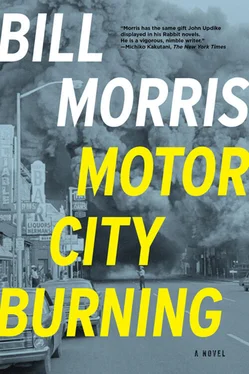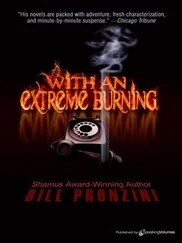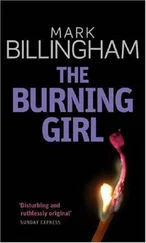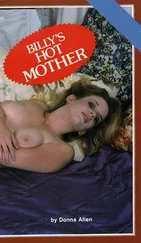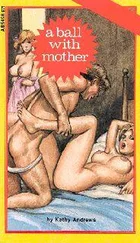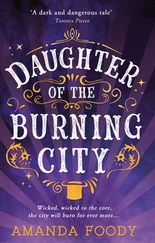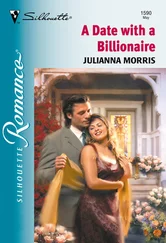There wasn’t a woman — there wasn’t a person — on the planet who could convince him to stay in Detroit. He didn’t tell her this, though, because he didn’t know if it would soften her pain or sharpen it, and he didn’t want to do anything to hurt this woman. She is who she is, Willie thought, a sweet sexy woman with a good heart who isn’t the one for me. And I am who I am, a man with a story to tell who needs to get far away from this town and never look back.
Octavia brushed confetti from his hair, forced herself to smile. “Hey, Willie, our D-troit Tigers done won the World Series.”
“They damn sure did. I’m still not sure I believe it.”
“I believe it. D-troit City gonna rock tonight.”
“Guess it’ll have to rock without me.” He could see it now — Edgar Hudson and Chick Murphy, Sambo and the Surf — both of them drunk as lords, dancing an impromptu interracial polka right there on the plush carpets of the Oakland Hills men’s grill. Willie supposed such a dance would have to be considered progress in this sick country right now.
“You drive safe,” Octavia said. She gave him another kiss, a quick one, a goodbye kiss. Then she screwed her Tigers cap back on. It looked sexy on her. Everything looked sexy on her. She got out of the car and said, “Good luck in New York.”
“Thanks, baby.”
“And write me a letter soon as you get to D.C.”
“I promise.”
As always, he watched her walk to her front door, the astonishing back and forth, watched her turn and blow him a kiss. Then she was gone.
But he didn’t leave for New York. When he got to Woodward he took a left instead of a right and headed north, away from downtown. He took a left at McNichols, another left at Normandy Street. There were half a dozen HUMPHREY-MUSKIE posters stabbed into the lawn in front of the big Tudor house halfway down the block. The lawn had just been mowed, and Bob Brewer was washing the bronze Deuce parked on the driveway. There was a HUMPHREY-MUSKIE sticker on its back bumper. Bob shut off the hose and dried his hands with a towel as Willie came across the lawn.
“You got time to do mine when you’re finished?” Willie said.
“Cost you five dollars.”
They laughed and shook hands. Willie fished in his pocket and handed a set of keys to his uncle.
“What’s this?” Bob said.
“Keys to my apartment. Sorry about the short notice, but everything I own’s packed in the trunk. I’m moving to D.C. to live with Walter, stopping in New York on the way. Looks like I’ve got a book deal.”
The surprise on Bob Brewer’s face gave way to a smile that was bright but hard to read — relief, pride, maybe both. He took Willie in his arms. “That’s great news, Cuz. Can’t say I’m surprised — I always knew you had it in you.” He released his nephew. He was still beaming and Willie could see that he, too, was fighting not to cry. “So,” Bob said, “guess this mean’s you’re clear with the po-lice?”
“Yeah, they brought me in for questioning, then let me go — cause I didn’t do anything.”
“How bout your brother?”
“They got nothin on him either. Sides, he’s back in Saigon starting a restaurant, or somesuch foolish shit. Looks like we’re both home free.”
There was no mistaking the relief on Bob’s face now. “Thank God. You got no idea how worried your momma and I were about you boys.”
“Mary home?”
“No, she’s out leafleting.” He motioned toward the posters on the lawn. Dedicated Democrats, Willie thought, true believers in the big lie.
“Well, tell Aunt Mary goodbye for me.”
“Will do.”
“And thanks for everything, Uncle Bob. You been a prince — except for that damn rent.”
Bob laughed and they hugged one more time. The last Willie saw of his uncle was in the Buick’s rearview mirror. Bob was rubbing his Deuce with a sudsy orange sponge. Willie couldn’t tell for sure, but he thought he saw a smile on the man’s face.
When Willie drove onto the Ambassador Bridge, the sun was setting off to his right. To his left he could see the empty stadium and, beyond it, downtown, all of it backlit by the fading sun. The river was molten copper. It looked like a postcard of a place he was already forgetting.
Ontario was as flat as a plate. He left the top down, rolled the windows up and cranked the heater on high as the night came down. There were stars, millions of stars, hard and white and pulsing. He stepped harder on the gas— go ahead and see what she’ll do —and the Deuce and a Quarter carried him at a gallop away from Detroit and into the cold velvet night.
THE END
This book was so long in the making that it’s hard to remember everyone who helped bring it into the world, let alone thank them properly. But I’ll try. Marianne gave me judicious readings, cold-eyed advice, and, above all, repeated reminders that giving up is not an option. Alice Martell is the agent all writers dream of — passionate, dogged, and classy. Jessica Case is that rarest of editors, able to dissect a manuscript line by line without losing sight of the big picture. Copyeditor Deb Anderson and proofreader Phil Gaskill are my heroes, dedicated to doing the thankless, invisible work that every writer needs. People will try to tell you that nobody in America edits books anymore. Don’t believe them. It has been a joy to see how much everyone at Pegasus cares about the books they make.
Thanks, too, to my family and the friends who stuck with me through some lean times, including David Newton, Pete Khoury, Loren D. Estleman, Adrienne Short, Danny Fox, Michael Gentile, and my beloved German girls, Katrin and Lotti. I hope the next one doesn’t take this long.
